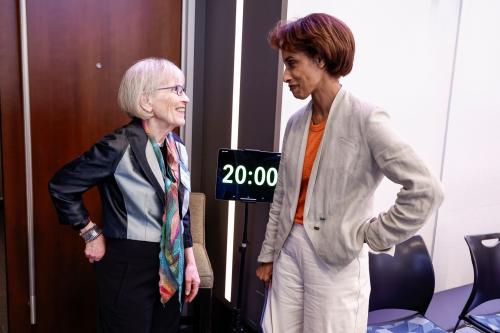People often point to Miami’s informal economy when trying to explain the city’s dismal poverty statistics. And it’s true. Miami has its share of cash-only, under-the-table car detailers, landscapers and housekeepers.
But that alone doesn’t explain Miami’s miserable median income ($23,483 vs. $42,000 nationally) or the paucity of its middle class.
In clear daylight, in storefronts around the city, above-board businesses take their cut right off the top of the wages of those struggling to build assets and join the middle class.
This parasitic economy—the check cashers, payday lenders, tax refund advance firms and envie dinero shops—thrives on low-income customers conventional banks don’t pursue and contributing to Miami’s weak middle class.
The disconnect between working families without bank accounts and mainstream financial institutions carries a huge price. According to the U.S. Treasury, a worker earning $12,000 annually pays about $250 of that to cash pay checks at a check cashing store, not including additional fees for money orders or wire transfers.
While credit card interest rates range from the mid-single digits to about 20 percent, payday loans carry an average annual percentage rate (APR) of 474 percent.
Four hundred seventy-four percent.
What would be the response to an offer like that in the raft of daily credit card junk mail?
Additionally, with Miami’s large immigrant population, steep fees for the overseas transfer of funds cause particular pain.
The high costs of these services also undermine government efforts to reward work and bootstrap families out of poverty.
Brookings Institution research shows that in 2001, $32.4 billion in Earned Income Tax Credit (EITC) refunds, designed specifically to aid the working poor, were issued. However, fully $1.9 billion went to loan fees, tax preparation services and filing fees.
Studies have shown that ownership of a bank account directly correlates with access to credit, like mortgage loans. So, the costs of this parasitic economy particularly hinder the key stepping stone to the middle class: homeownership.
For these reasons, the goal of helping low-income families build assets was one of the key policy recommendations of our report “Growing the Middle Class: Connecting All Miami-Dade Residents to Opportunity.”
Though these alternative financial service providers are regulated by state and federal government—and federal reforms on such practices are direly needed—there is much that can be done at the local level.
First off, campaigns to increase awareness of programs benefiting working families like the EITC should be expanded. The Greater Miami Prosperity Campaign has made great strides in informing many families who might otherwise miss out on the credit about how to claim it. But nearly two-thirds of EITC filers in Miami-Dade still pay to have their taxes prepared and filed. The campaign needs additional capacity to provide these services for free. Alternatively, local leaders could explore partnering with commercial preparers who charge low-income clients reasonable fees, and who do not sell high-priced refund loans.
There is a role as well for financial and homeownership education. Advice on budgeting could help families maintain small amounts of savings that allow them to avoid predatory payday and tax refund loans. Education could also work to boost consumer credit ratings, expanding the pool of prospective urban homebuyers.
In the end, though, only mainstream financial institutions have the scale to provide these workers with reasonably-priced services and opportunities to build assets over time. The nonprofit community and local government should partner with these institutions on research and development initiatives to create products tailored to the needs of Miami’s lower-income families.
Applied holistically, this policy medicine can help purge the parasitic economy, provide working families with more choices and build Miami’s middle class.
The Brookings Institution is committed to quality, independence, and impact.
We are supported by a diverse array of funders. In line with our values and policies, each Brookings publication represents the sole views of its author(s).



Commentary
Op-edPurging the Parasitic Economy
September 7, 2004